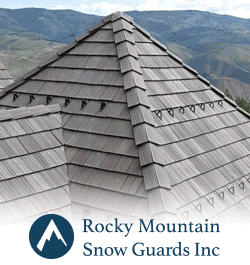3 common roof tile myths

By All Points Tile & Slate.
Learn why roof tiles can be discontinued and why some common beliefs about tiles are simply not true.
When a roof tile is discontinued, it typically does not mean that the tile is low quality. A discontinued roof tile is often one that is just not being manufactured anymore. This can often happen when roofing tile companies consolidate their businesses and reduce their offerings. The tile roofing industry has seen their market experience major consolidation and now, only a few companies produce new products.
Why are tiles discontinued?
During the consolidation process, the larger companies often choose to discontinue the tile products of the smaller companies they acquire. These abandoned product lines are what we commonly refer to as discontinued tiles. This misconception arises from the notion that discontinued tiles are inherently flawed or inferior. In reality, they simply refer to products no longer being actively produced.
Understanding why roofing tiles are discontinued is crucial for homeowners to make informed decisions. Discontinued products were specifically designed to interlock with each other and are not compatible with other tile products. Consequently, it is important to note that the Florida Building Code prohibits repairing a discontinued tile roof.
This information holds significant importance for homeowners in Florida, as the majority of tile roofs in the region feature discontinued tile products. The Florida Building Code prioritizes the health and safety of its residents, which is why it strictly prohibits using incompatible and non-interlocking tile products for roof repairs. This regulation aims to prevent accidents caused by falling tiles, preserve the integrity and safety of the roofing system, and ensure a visually appealing, uniform, and well-performing roof structure.
3 common misconceptions about roofing tiles
There are several common misconceptions surrounding tile roofing, despite it being one of the oldest and most durable roofing systems. Clay and concrete tile roofs have undergone rigorous testing in extreme weather conditions, proving their resilience against heavy rain, hurricane-force winds, hail, and freeze-thaw cycles. Tile roofs are inherently fireproof and surpass the current seismic load requirements for building materials when installed according to the recommended fastening guidelines.
While highly functional, clay and concrete tile also offer an appealing aesthetic, making them a cost-effective and long-lasting roofing option for residential and commercial structures. Three of the most common misconceptions about tile roofs are their water resistance, susceptibility to impact, and heat retention.
1 - Tile roofs absorb water, which makes them leak
Contrary to a common misconception, tile roofs do not necessarily leak due to water absorption. This myth may have originated from the fact that clay, as a material, is naturally porous and can absorb moisture upon contact. However, traditional clay tiles undergo a high-temperature baking process during manufacturing, significantly improving their waterproofing capabilities. The longer the tiles are baked, the better their waterproofing properties become. While lower-quality tiles may absorb more water, they do not become soft or lead to leaks.
To minimize moisture intrusion and prevent algae growth, it is advisable to choose high-quality fired clay tiles or consider coated tiles offered by some manufacturers. Although the coating may wear off over time, it can be reapplied. The crucial point to note is that moisture absorption in uncoated clay or concrete tiles does not automatically result in leaks unless the tiles have existing cracks. Clay and concrete tiles have an average moisture absorption rate of less than 1%, effectively enabling them to withstand heavy rain and dry conditions. Their low absorption rate also makes them naturally resistant to mold growth, rot, and insect damage. In addition, both concrete and clay tile roofs can endure rain, snow, and freeze-thaw cycles without sustaining damage.
Manufactured through a high-temperature firing process, clay tiles acquire increased strength and durability, rendering them nearly impervious to the elements. Concrete roof tiles, conversely, are designed with superior density and durability, providing resistance against the damaging effects of high freeze-thaw weather conditions. Concrete tiles’ low porosity protects them from moisture freezing within their interior. Tiles rated as Grade 1, according to ASTM C1167 industry standards, are specifically manufactured to withstand harsh winters and freeze-thaw cycles. These tiles are suitable for use in any region, regardless of annual rainfall or cold temperatures.
2 - Tile roofs crack on impact
The misconception that tile roofs easily crack upon impact is contingent upon the quality of the tiles used. Reputable roofing contractors typically provide thick and durable roofing tiles that are capable of withstanding impacts from hailstones, debris, and foot traffic. Curved tiles tend to have higher pressure resistance than flat tiles of similar mass, making a tile roof inherently more resilient. Proper installation techniques ensure even weight distribution and further enhance the roof’s impact resistance.
Both concrete and clay tiles undergo rigorous testing for hail resistance, following the standards set by FM4473. They are designed to withstand damage from hailstones larger than a golf ball. An underlayment of asphalt roofing paper is typically applied over the roof decking to provide an extra layer of protection. This underlayment acts as a secondary defense mechanism against potential impacts. It reinforces the overall durability of the tile roof structure.
3 - Tile roofs tend to overheat
While all roofing materials absorb heat to some extent, the key factor is whether they allow heat to pass through into the attic. Roofing tiles, such as concrete and clay tiles, have inherent insulation properties that limit the amount of radiated heat that reaches the roof deck. When combined with proper attic insulation, this minimizes heat transfer and prevents ice dam formation during winter. The design of tile roofs also promotes air circulation under the tiles, further reducing heat transfer to the attic and enhancing overall energy efficiency.
Regarding fire safety, concrete and clay tile roofing surpass traditional materials like shingles, wood shakes, or metal. Tile roofs achieve the highest fire rating classification, Class A, for the roofing product itself and the installed system. This rating involves tests for flame spread, intermittent flame, and burning brand simulation. Class A roofing materials provide exceptional fire protection to the roof deck, as they exhibit minimal flame spread, do not slip from their position, and are unlikely to produce flying brands or embers that could contribute to the spread of a fire.
What to do if your roof tiles are discontinued
If you find yourself in a situation where your roof tiles are discontinued, there are certain steps you can take. Firstly, if a complete roof replacement is deemed necessary, you have the freedom to choose any shingle or roofing material that suits your preference. However, it is necessary to have a professional roofer evaluate the condition of your roof and confirm the need for replacement before contacting your insurance company.
Your chosen roofing contractor will be able to identify if your tiles are discontinued, explain the reasons behind their discontinuation, and explore potential alternatives. The Tile Roofing Industry Alliance (TRI) provides an updated listing of the most commonly asked-about discontinued tiles, which includes brands such as Pioneer, Currier, Entegra, Wallin, Bender and Hanson (as of their October 5, 2022 update). These tiles are considered obsolete and incompatible with the profiles offered by current TRI member roof tile manufacturers.
While the manufacturers make efforts to offer replacement colors that closely resemble your existing roof, it is important to note that achieving an exact color match is highly unlikely. Your roofing contractor will guide you through the available options and assist you in selecting the best alternative for your new roof.
Where to find discontinued tiles
To locate discontinued tiles, your best bet is to visit tile warehouses like All Points Tile and Slate or check manufacturer and supplier tile closeouts or clearance sales. While antique stores or architecture salvage shops may have old tiles, finding an exact match can be a challenging task.
If you’re unsure whether your roof has discontinued tiles or need assistance in finding the right material for repairs, contact All Points Tile and Slate. Our team specializes in procuring rare and discontinued roof tiles, catering to the needs of industry professionals and homeowners. Our knowledgeable staff is trained in identifying tiles from various profiles, materials, manufacturers and locations worldwide.
Aside from storing rare and discontinued tiles, we also offer a wide range of currently produced concrete and clay roof tiles to meet your repair or complete roof replacement requirements. Our collection features popular styles such as Villa, Spanish, French, Shake, Mission Barrel and Modern. With our extensive inventory and expertise in assisting homeowners, we can even design custom blends to achieve a unique and stunning aesthetic for your roof.
While we are located in Oviedo, Florida, our services extend beyond the Central Florida region. We serve customers in Jacksonville, Sarasota, Tampa, Port St. Lucie, West Palm Beach and many more areas. Don’t hesitate to reach out to All Points Tile and Slate, where we are dedicated to helping you find the perfect roofing materials and ensuring the beauty and functionality of your roof.
Original article: All Points Tile & Slate
Learn more about All Points Tile & Slate in their Coffee Shop Directory or visit www.allpointstile.com.





















Comments
Leave a Reply
Have an account? Login to leave a comment!
Sign In